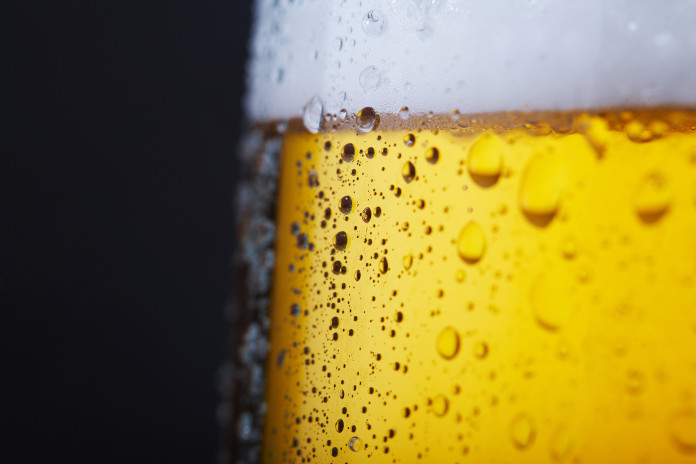
The Advertising Standards Agency (ASA) – the body that oversees the UK’s self-regulatory advertising codes – has recently upheld three complaints against alcohol marketers. The adjudications serve as a reminder of the responsibilities that alcohol marketers face under the advertising codes, and an illustration of the ASA’s powers to review advertising claims in media other than traditional ‘paid for’ advertising space (including claims on a company’s own website).
Summerhall Distillery
In the first of these cases, the ASA was asked to consider advertising claims made by Summerhall Distillery for its ‘Pickering’s Gin’ product. The claims were made on its website, in a social media feed and in a print ad in a local magazine. A rival spirit company challenged a claim in the ads that Summerhall was “Edinburgh’s 1st gin distillery in over 150 years”. Summerhall argued that this claim should be read as meaning that theirs was the first dedicated gin distillery in Edinburgh in the last 150 years.
The ASA ruled that the ads did not specify that the claim related to exclusive or dedicated distilleries, and so consumers would interpret the claim as relating to all commercial gin distilleries, and not only to those exclusively used for manufacturing gin. As Summerhall’s rival was able to produce evidence that another distiller had distilled gin on a commercial basis within the city in the 1930s, the ASA ruled that the complaint was misleading and in breach of the UK Code of Non-broadcast Advertising, Sales Promotion and Direct Marketing (CAP Code).
The ASA also considered a further claim in one of the ads that Summerhall had ‘established’ the first gin distillery in Edinburgh in the last 150 years. Given it had been proven that at least one premises that distilled gin had been in operation in the relevant period, and Summerhall was unable to establish when that distillery had been established, the ASA also upheld this second complaint on the basis that it could not be adequately substantiated. The case serves as a useful reminder that the CAP Code requires marketers to hold documentary evidence to prove claims that consumers are likely to regard as objective and that are capable of objective substantiation before distributing or submitting the relevant marketing communication for publication.
Sibling Distillery
The second case provides an interesting example of how an adverse ASA adjudication can potentially affect a marketer’s key advertising message, or unique selling point. Sibling Distillery is a gin distillery founded by four siblings. The website for the company contained a page headed “Who We Are” which featured a photograph of the siblings alongside the claim: “We have grown up surrounded by this industry, and although the eldest of us … is only 23, between us have over 30 years of experience …”.
The Youth Alcohol Advertising Council instigated a complaint with the ASA on the basis that the website page breached the CAP Code as it contained advertising claims about an alcohol product and featured people under 25. Sibling Distillery responded by pointing out that the claim was factually true, and noting that no one in the photograph was seen consuming or holding alcohol.
The ASA noted that the CAP Code requires that advertisements for alcohol must not feature people under 25 years playing a significant role. Whilst the information about the siblings was factually correct, because they were the owners of the business and the website referred to their experience and background, the ASA took the view that they were playing a significant role and upheld the complaint. As a result, the distillery has been forced to change its website so that it does not contain images of or any detailed information about its founders.
Drink Doctor
In the final case, the ASA received a complaint about a company called ‘Drink Doctor’, which operated an online business delivering alcohol and related supplies on a 24 hour a day basis. The company’s Facebook page contained advertising messages which included various medical terms and imagery, including a woman in a nurse costume, a phone number containing the figure “999” highlighted in red, a white van marked with the word “Boozebulance”, and a red line in the style of an electrocardiogram.
The CAP Code requires marketers to ensure that their communications are prepared with a sense of responsibility to consumers and to society, and that marketing communications for alcohol products must not imply that they have therapeutic qualities. The ASA upheld the complaint on the basis the ads presented alcohol as a product to be used in the same manner as medical treatment and that they therefore drew a link between the provision of alcohol and the provision of medical assistance. Further, the medical references in an ad for an alcohol delivery service implied that the alcohol products had therapeutic qualities.
Interestingly, the ASA also ruled that “the name ‘Drink Doctor’ in itself contained the same implication by conflating the role of a medical professional with the provision of alcohol”. Given that the ASA’s remit now extends to marketing communications on a company’s own website, it will be interesting to see if the ASA receives any further complaints about Drink Doctor and, if so, whether the threat of continuing sanctions from the ASA could lead the company to change its name.
By Craig Giles









